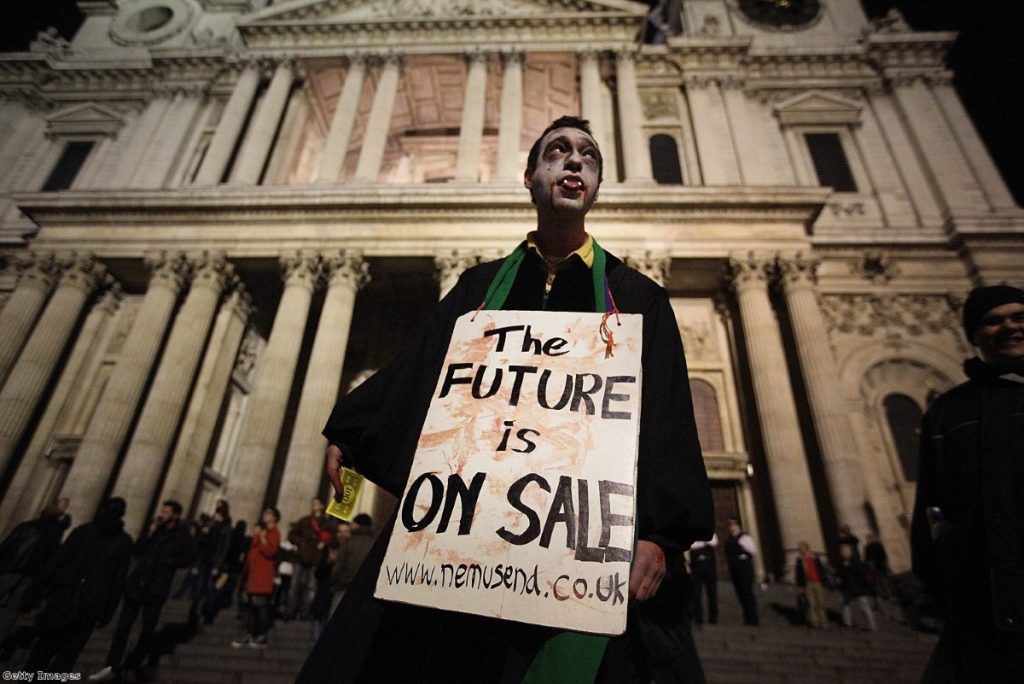The ultimatum: St Paul’s protesters given 48-hours to clear their tents
By Ian Dunt Follow @IanDunt
Occupy London protesters have been given just 48-hours to clear their tents from around St Paul's cathedral by the City of London Corporation.
The letter, which is being handed to demonstrators today, marks a potential climax for the long-running protest, which has triggered a bout of resignations from the Church.
If demonstrators refuse to abide by the order, as seems likely, action is expected at the high court.


Reports this morning suggested Bishop of London Dr Richard Chartres had broken ranks and demanded the Church disassociate itself from the eviction. A meeting between Dr Richard and Church leaders later saw them drop their challenge to the camp.
Home secretary Theresa May welcomed the news, saying "the police and the Church and the Corporation of London need to work together to clear the protest as soon as possible".
The development comes just a day after Rt Rev Graeme Knowles, who lobbied to have campaigners removed from around St Paul's, resigned following widespread criticism of his approach from within and outside the church.
The Archbishop of Canterbury's response to the resignation suggested sympathy for the protesters and their aims.
Dr Rowan Williams said the protest was being conducted "in good faith by good people under unusual pressure".
He added: "The urgent larger issues raised by the protesters at St Paul's remain very much on the table and we need – as a church and as society as a whole – to work to make sure that they are properly addressed."
The Occupy London movement issued a statement saying the protest was about "social justice, real democracy and challenging the unsustainable financial system that punishes the many and privileges the few".
By issuing the eviction order, the City of London threatens to bring some of the controversy engulfing the Church on to itself, as its operations are dragged into a row dominating the headlines.
The City of London is a local authority with the unusual quality that most of its electoral wards are controlled by private companies and financial institutions.
The arrangement is controversial, not least because so many of the institutions come from outside the UK, but successive British governments have failed to challenge its power.

